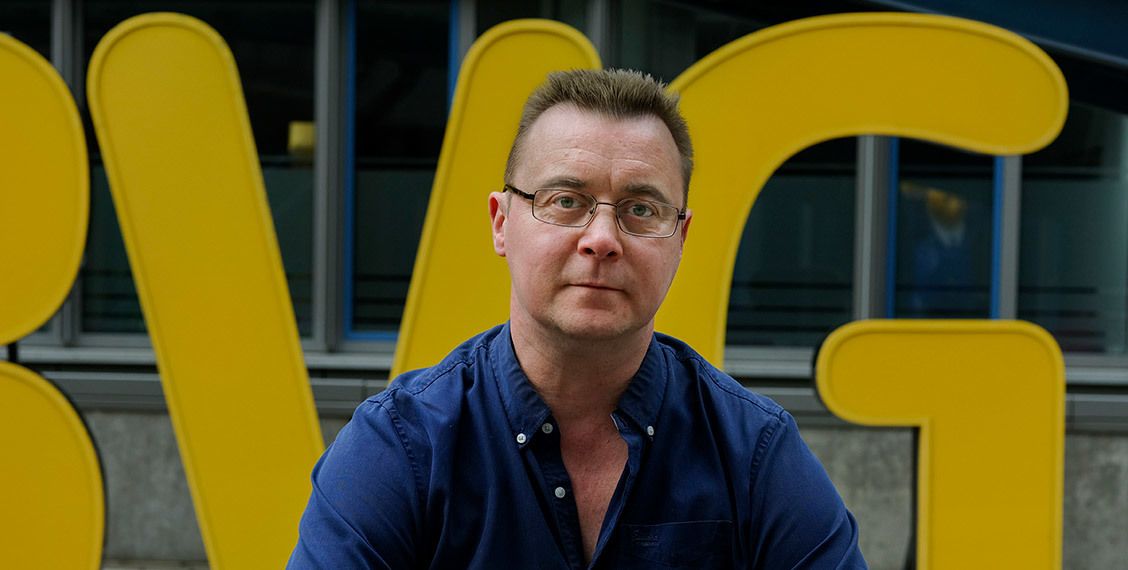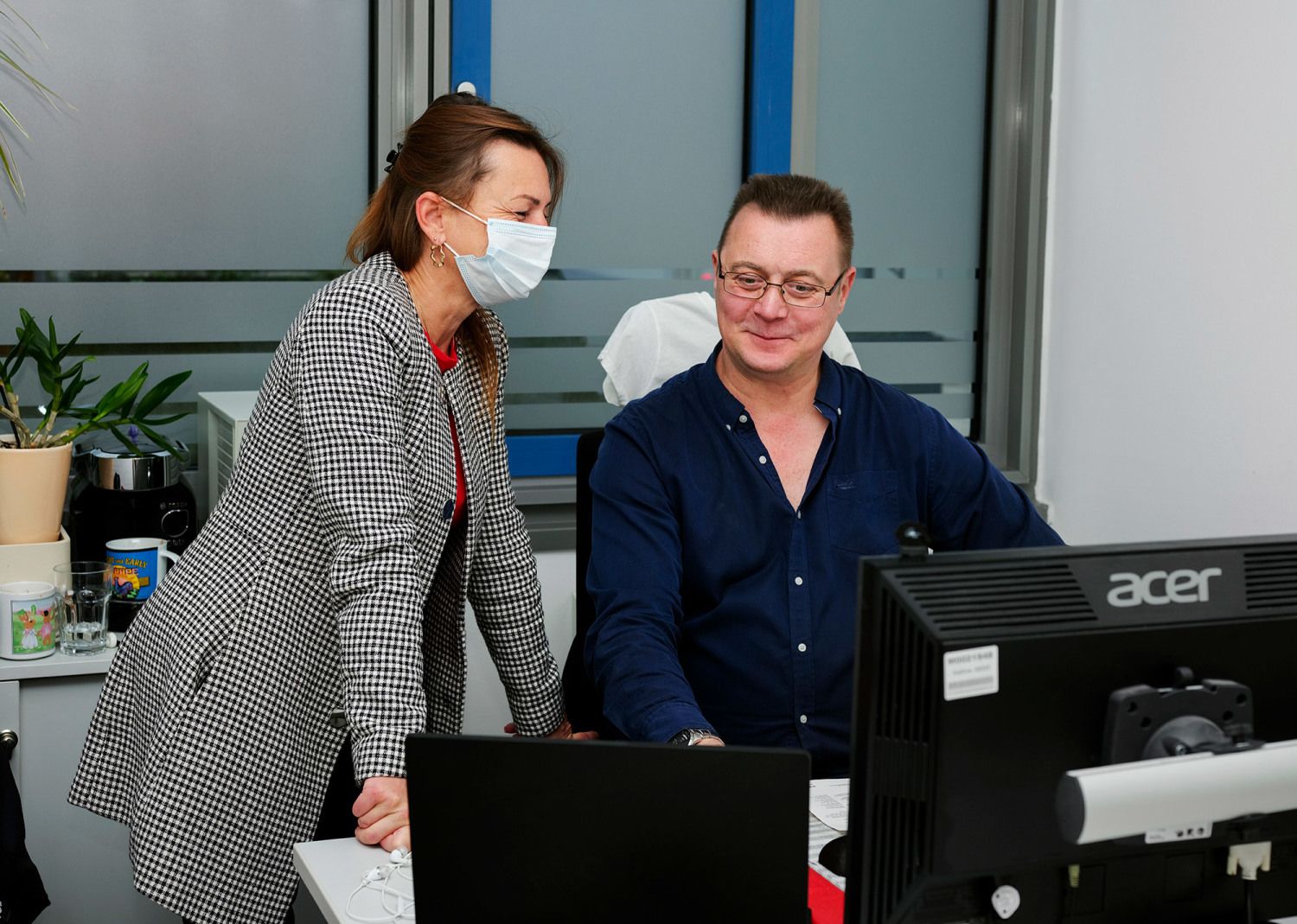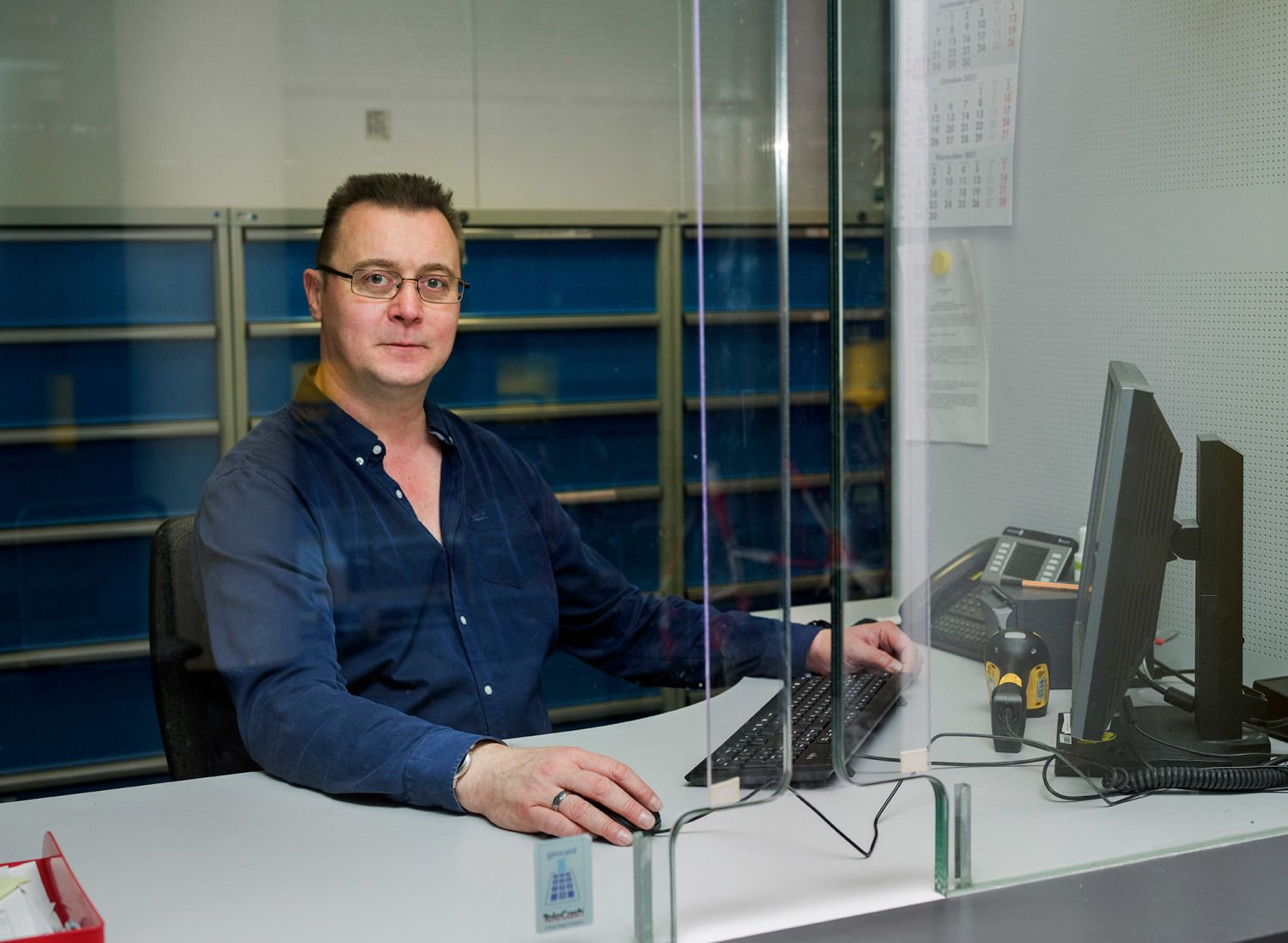Today, Schmidt is aware that his perspective was one-sided at the time. But when someone is in a rut, they don’t necessarily see their own situation in its entirety. For two years, he was unemployed and drifted without a goal. One day, he was giving the free Internet at a neighborhood café in Neukölln an upgrade – primarily in his own interest at the time – when he met one of the café’s dedicated employees. A lucky chance meeting, Schmidt is happy to say in hindsight: She became his wife and the mother of his children, who were born in 2005 and 2008 respectively.
The new relationship motivated him to start looking for a job again. The job center, which pays benefits to and finds jobs for long-term unemployed persons, referred him to a temp agency, which unfortunately only wanted to find a profitable placement for him, without really showing an interest in his career and qualifications. Schmidt therefore soon ended the working relationship with the agency. He was then hired by one of the very companies he would have been sent to as a temp – in a better position due to his excellent English.
And so Michael Schmidt wound up in the support department of a computer manufacturer, in the familiar surroundings of a call center. Despite shift work, he was very happy with the job. “It was great work. I was given responsibility, such as doing research or answering my colleagues’ questions, and little by little, I was trained to be a team lead. Thanks to that, I was earning quite well, despite being in the low-wage sector, and my family and I didn’t have to worry about being able to support ourselves.”
But things didn’t stay that way; the company faced restructuring and redundancies. The fact that Schmidt had to fire people against his will put a tremendous strain on him. In addition to the psychological pressure, he was assigned numerous fields of activity that he had to manage on top of his actual work.
The pressure he was under grew steadily, until his body finally refused to function: Over the course of nine months, he collapsed a dozen times. Schmidt developed high blood pressure, diabetes, and rapidly gained weight. “I ate like a horse. That’s how I ruined myself.” The emergency doctor had to come for him several times. “Until my doctor told me, quit the job. You won’t be able to keep it up in the long run.” After this setback, Schmidt needed one thing above all, besides his many medications: peace and relaxation.




